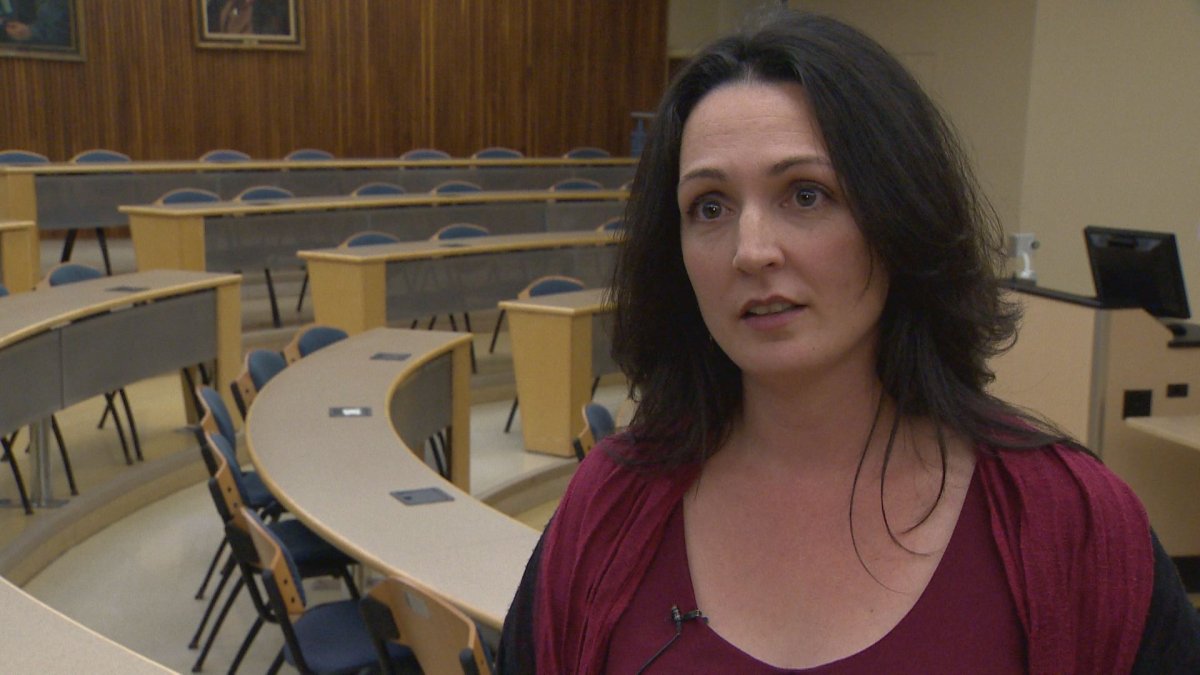On Friday, Dalhousie University hosted the F.B. Wickwire Memorial Lecture in Professional Responsibility and Legal Ethics.

This year’s event focused on Aboriginal and Indigenous law.
One panellist was Naiomi Metallic, who is Mi’kmaq.
READ MORE: Canada’s Indigenous population growing 4 times faster than rest of country
The law professor said Aboriginal law generally references the state’s law that applies to Indigenous people. Indigenous law encompasses the laws of Indigenous people (created for and by them).
Metallic spoke with Global News after the lecture. Here is part of the interview, which has been edited for length.
What are a few of the problems that you’ve identified?
What are the things that need to be done in order to solve these problems?
Perhaps not seeking to throw out every case on procedural matters, that would be a good thing, right? Hearing them on their merits. Another thing is the types of arguments that are made, not making arguments that are deeply offensive to Indigenous people but actually taking certain things for granted like the rights that have been established so far. I mean, we still have cases where they want to actually still argue that a treaty is invalid, or that the royal proclamation has no legal validity, or that Indigenous people’s laws have no validity, so I think if you want to talk about reconciliation, you need to stop making those arguments and actually accept the things that you’re saying you’re embracing, which is the Truth and Reconciliation Commission report, and the UN declaration — embrace the principles that are in there as sort of your starting point, and not make arguments that take us back in time.
You discussed a number of disparities in your presentation; which one sticks out the most?
Are you hopeful things will get better? If so, why?
My Facebook post today was: ‘There are some days — most days I’m very hopeful, and then there are some days that I am struck to the extent that we are still in a very colonial system that is very resistant to change.’ So, today might not be the best day to ask me that question because I got a decision that was really disheartening, but we hope that through education, through educating lawyers, through educating law students, educating judges in some way, that things will change, and you just got to get up every day and keep fighting.
Do you have any tips for lawyers aiming to be part of the solution?
There’s lots that you can read, there are tons of great scholars — Indigenous scholars — who are writing, there’s courses that you can take, you can sign yourself up for education, there are lots of great articles that are being read today. So, sort of following and being aware of what’s going on, and feeling like it’s not our job to educate you, it’s your job to educate yourself. Yes, we can help and we will try to assist in ways we can, but it is an individual’s obligation, as a professional, as a lawyer to know this, and it’s not just an Indigenous people’s problem or their obligation to educate you.
- Budget 2024 failed to spark ‘political reboot’ for Liberals, polling suggests
- Train goes up in flames while rolling through London, Ont. Here’s what we know
- Peel police chief met Sri Lankan officer a court says ‘participated’ in torture
- Wrong remains sent to ‘exhausted’ Canadian family after death on Cuba vacation





Comments